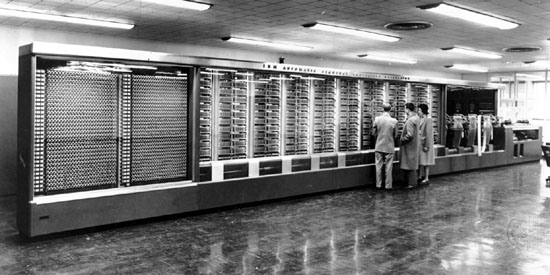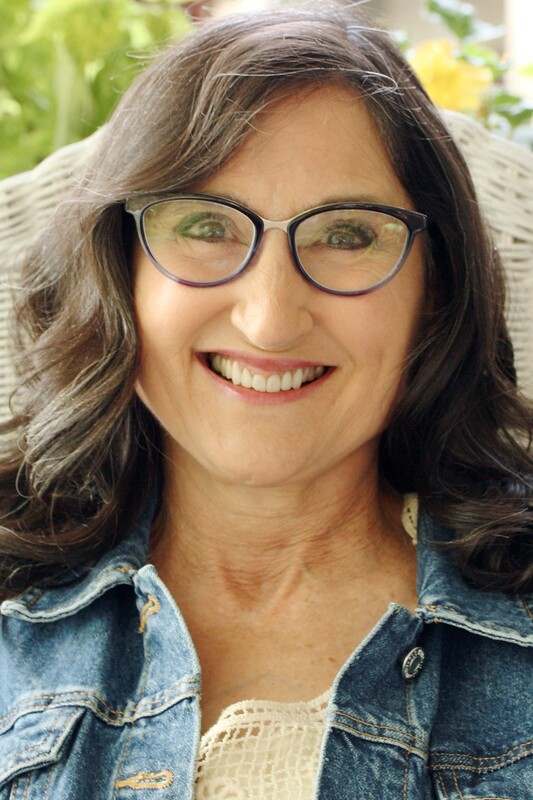 A Woman's Work A Woman's Work Out for a beer last weekend, I met Melissa, a friendly, petite young woman with sparkling brown eyes and a ready smile. She didn’t fit the picture in my mind of a structural engineer. Shame on me. For the past ten years, many a construction worker has made the same judgment, but Melissa has persevered in her career. She does not let others define her talents. She is forging her own path. That takes courage. She put me in mind of Grace Murray Hopper, A woman I only recently learned about, to whom I owe a great deal. You do, too. Grace Hopper was a pioneer computer scientist born in 1906. She invented the first compiler in 1952. The revolutionary software became the foundation for the first computer languages. Which led directly to me having this amazing machine which allows me to type this newsletter and send it to you. No wonder they called her Amazing Grace. To me programming is more than an important practical art. It is also a gigantic undertaking in the foundations of knowledge. ~Grace Hopper 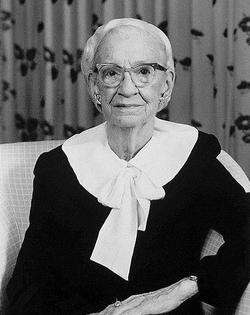 At age seven, Grace took apart every alarm clock in the house. Her mother encouraged her curiosity, but restricted her tinkering to one clock at a time. Grace's mother was also an unconventional woman, find a way to study geometry in an era when it was considered improper for females. Grace's father insisted his two daughters have the same education and opportunities as his son. He showed Grace by example, she could succeed against great odds, not letting the fact he was a double amputee stop him from living a full live and running a successful business. Grace studied mathematics and physics at Vassar, then became one of the few women in the 1930s to earn a Ph.D. in Mathematics at Yale, where she then taught until World War II. In 1943, Grace joined the U.S. Navy. Nearly all women in the navy were relegated to nursing or lesser duties. Grace was assigned to the programming staff for the new Mark I computer at Harvard. Grace was a positive thinker, not afraid to take risks or look foolish. Tireless in seeking solutions, she did not know the word impossible. In the male-dominated world of computer science, people thought her eccentric and outspoken. Her peers ridiculed her for believing that computers could be made to speak English. Grace proved them wrong. Humans are allergic to change. They love to say, “We’ve always done it this way.” I try to fight that. That’s why I have a clock on my wall that runs counter-clockwise. ~Grace Hopper  The Data Processing Management Association named Grace the first Computer Science Man of the Year in 1969. She elevated computers from a “yes/no, or 1s and 0s operation to an if/then method. The compiler her team invented was ground-breaking because it relieved programmers from writing long, repetitive, time-consuming and error-ridden code. It enabled computers to retrieve lengths of common code from its memory. Grace had a long career in the Navy and Naval Reserve, one of the few women to achieve the rank of Rear Admiral. When she retired in 1986, at age 79, she was the oldest serving officer in the Navy. Grace says, after the compiler, the most important thing she did was work with young people. She encouraged them to keep taking chances. That one think I'm going to try and remember from this story. Take a chance, I'll never know what I can do, unless I give it try. What about you? How does Amazing Grace Hopper inspire you?  Maybe you're just having a bad day. Or maybe stress on the job, or at home makes every day a challenge. Follow the lead of Clare Brooks, a nurse who organized a retreat day for herself and fellow workers. After eighteen months of stressful transition at the hospital, she realized nurses couldn't wait for someone else to recognize they're energy was depleted. They'd have to refuel their tanks themselves.  Emergency room nurses at Seattle Children's Hospital must be ready at any moment to care for a critically ill or injured child. They must understand and follow complex protocols and make split second decisions. The nurses deal with anxious family members and often work long hours without a break. Kate Bracy, RN, MS told nurses the main elements of resiliency are healthy coping skills, a sense of hope, self-awareness, strong relationships. and offered ways of enhancing resilience. ENHANCING RESILIENCE: I asked Clare if the day was worthwhile. 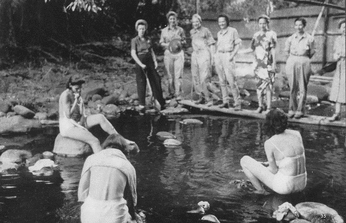 My part of the retreat was to share the inspiring story of the American WWII nurses who survived combat and Japanese prison camp. Their nursing vocation was important in giving them a purpose. It helped sustain them day after day as they suffered hunger and disease. And I spoke about the importance of identity. The nurses were strengthened by their identity as U.S. military women. We have the opportunity to dig deeper for our identity, to some core or passion within us that doesn’t not come from an outside label. Labels fall away, or can be torn away. Our outer identity often depends on a job we do or a role we play. These can change over time, or in an instant. Labels fall away, To be resilient in the business of writing for children, I've discovered I had better not pin my identity on getting published or having my books sell well. Yes, that happened for me with PURE GRIT. But I've been writing for more than 15-years and there were a lot of those when I did not get a book published.
What about you? Beyond the work you do and the roles you play, such as parent, partner, cook & bottle-washer, do you have an identity that does not depend on results you produce? 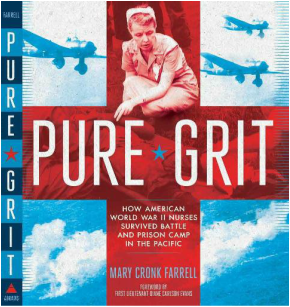 The final draft is almost never the final draft. That's what I learned in the process of publishing PURE GRIT. There are so many details! Copy edits can take several run throughs. Then there are photo captions, end notes, first pass on the galleys (which is an unbound printout of the actual book) second pass on galleys... It's kind of like life, when you think you've finally learned a lesson, finally got it right--then it comes round again. I sent in my "final draft" of my next book, FANNIE NEVER FLINCHES, this past week, I knew I would see it again and again over the next year. But I celebrated anyway. I celebrated even though there will probably be unexpected hitches in the process. Sometimes books at this stage get bumped out another year. If I wait to celebrate until the day I hold the finished book in my hands, I'll cheat myself many times of the satisfaction and joy that come with a job well done.  We can all use more joy We can all use more joy It's kind of like life. If I'm always leaning forward into what's coming, I'm missing the joy of what's right here now. So I try to celebrate as often as I can. Sometimes the celebration is a simple pause to bask in the reality of the experience. A glass of champagne is nice, too! After I clicked send on the final draft of my book last week, I sat in my living room and relaxed. For a few minutes I had nothing to do. I allowed myself the space to enjoy being finished. Being finished without thinking about the next task on my to-do list. That is an amazing feeling! Sometimes I celebrate by giving myself time to read a YA novel all the way through in one sitting. Lots of my celebrations usually include food and friends. Pastries anyone? How do you celebrate? How do you mark success, large and small? |
I'm fascinated to discover little-known history, stories of people and events that provide a new perspective on why and how things happened, new voices that haven't been heard, insight into how the past brought us here today, and how it might guide us to a better future.
I also post here about my books and feature other authors and their books on compelling and important historical topics. Occasionally, I share what makes me happy, pictures of my garden, recipes I've made, events I've attended, people I've met. I'm always happy to hear from readers in the blog comments, by email or social media. Archives
September 2023
Categories
All
|
